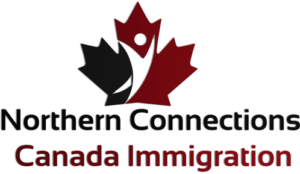On November 6th, Canada updated its guidelines for issuing temporary resident visas (TRVs), also known as visitor visas. A TRV is essential for travellers coming to Canada for various purposes, such as tourism, family visits, or business from visa-required countries.
The new policy shifts away from a default preference for multiple-entry visas, allowing visa officers more flexibility to issue either single-entry or multiple-entry visas based on the applicant’s specific circumstances.
Here’s a breakdown of what this policy shift means for prospective travellers and key factors visa officers now consider when determining visa type and duration.
Multiple-Entry Visa: What It Means
A multiple-entry visa (MEV) allows the holder to enter Canada as many times as needed within the visa’s validity period, up to a maximum of ten years or until the passport or biometrics expire (whichever is sooner). Here are some key points about MEVs:
- Multiple Entries: MEVs allow travellers to enter Canada from any country as often as required during the visa’s validity period.
- Validity Limitations: MEVs are generally valid for up to ten years, though they may expire sooner based on the validity of the passport or biometrics.
- Passport Requirements: Even if an MEV is attached to a fully-used passport, it remains valid as long as the traveller carries both expired and new passports for travel to Canada.
These visas provide significant flexibility, especially for those who need to make frequent trips, such as family visits or ongoing business ventures. However, with the updated guidance, single-entry visas may now be issued more frequently when the specific purpose of visit among other factors doesn’t necessitate multiple entries.
Factors Influencing Single and Multiple-Entry Visa Issuance
Canada’s immigration officers may now exercise their judgement on whether to issue single-entry visas (SEVs) for one-time events or circumstances and multiple-entry visas (MEVs) when there’s a likelihood of repeated visits. Here’s what they’ll consider:
- Purpose of Visit
Officers look at the reason behind the visit. Single-entry visas may be more appropriate for:- One-time or short-term events, such as conferences, training sessions or tourism.
- Conversely, MEVs might be more suitable for applicants who plan to visit Canada frequently, such as those with close family in the country or those attending multiple professional meetings.
- Financial Stability and Resources
The applicant’s financial situation plays a crucial role:- An ongoing and stable source of funds (e.g., employment) is generally favourable for MEVs.
- If a Canadian host is supporting the visitor, officers will assess the host’s ability to cover expenses and their financial standing.
- For business travellers, a letter from their employer confirming funding support could positively influence the visa application.
- Medical Factors
If the applicant has existing health conditions or is visiting Canada for medical treatment, officers may require a plan that includes proof of health insurance. The length of insurance coverage might also impact the validity period of the visa. - Ties to the Home Country
Strong connections to the applicant’s home country, such as steady employment or family obligations, can support the case for your visa type, as they demonstrate intent to return home. - Other Factors
- Travel History: Previous travel, especially to Canada or similar countries, and adherence to past visa conditions will influence the visa outcome.
- Previous Refusals: Any history of visa refusals in Canada or other countries is also a consideration.
Determining the Validity Period for Visas
While MEVs can be issued with a validity of up to ten years, the updated guidance allows for flexibility in the visa’s validity period. Officers may issue shorter MEVs for specific scenarios, including:
- Short-Term Visits: When the purpose is a short-term business or family commitment, such as post-sales support under a warranty or a brief professional engagement, the MEV may be issued with a reduced validity.
- Country Conditions: An applicant’s status in their home country and any unstable economic or political conditions can impact the visa’s duration.
Conclusion
Canada’s updated approach to single and multiple-entry visas offers increased flexibility, allowing immigration officers to make decisions based on individual circumstances.
With these changes in effect, it’s more important than ever to ensure your visa application is solid and includes all the relevant documents and information in order to achieve the desired outcome. Navigating the nuances of Canada’s visa policies can be complex, which is why it’s crucial to consult an immigration expert who can help you prepare a strong application, avoiding pitfalls.
Get Expert Guidance on Canada’s Immigration Changes
If you’re planning to visit Canada or are concerned about how the recent changes to the multiple-entry visa policy may affect your visa renewal, we’re here to assist. Schedule a personalized consultation with one of our experienced immigration consultants to ensure you navigate these changes smoothly.
Our team will assess your unique circumstances, help you understand your visa options, and guide you through the application process. Contact us today to book your consultation and ensure a seamless travel experience to Canada.
The Team at Northern Connections Canada



